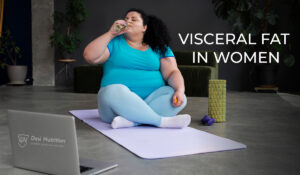Women go through a lot after giving birth to a child. Immediately after giving birth mothers face a phase in their lives that they might find overwhelming at some point. The joy of childbirth is often associated with adjustments as well, mentally emotionally, and of course physically. Women often look for ways to maintain themselves, especially when it comes to their body weight. In this article, we will navigate through the safe tips on how to lose weight after pregnancy.
When mothers are navigating the challenges of caring for their newborns they face other challenges as well, like losing weight during pregnancy. Your body will undergo significant changes during pregnancy and childbirth. You need to give time to your body to adjust to the aftermath of pregnancy.

You might find it difficult to manage a strict diet and exercise routine because you will be taking care of the newborn.
What is postpartum weight loss?

Mothers usually experience weight reduction immediately after childbirth because the body sheds the weight of the baby, placenta, amniotic fluid, and excess blood. But this is just the beginning. In order to get a healthy weight you would need time and patience because postpartum weight loss is a gradual process that could vary from individual to individual.
Reduce postpartum weight
You will experience immediate weight loss after childbirth because your body will shed the weight naturally by shedding the weight of the baby, placenta, and fluids. But coming to a desired weight for your body could take your sweet time. Here is how you can do it strategically:
Take your time:
Your body has just given birth to a newborn. The one who was in your womb for 9 months. Your body needs time to adjust to this major change. Ensure you give time to your body because it needs it for postpartum recovery. Treat your body positively; do not rush things or else you will make the postpartum or “fourth trimester” difficult for yourself.
Set realistic goals:
Do not expect much from your body. Set realistic expectations and goals for your body. Postpartum weight loss will take time and you should not rush things because you are eager to get back to your previous weight. Have patience and work towards your long-term goals with small steps.
You should be flexible with your goals and understand that every woman’s body is different and so are their responses to various situations. Factors like genetics, pre-pregnancy weight, and lifestyle could majorly contribute to the pace of your weight loss after pregnancy.
Be patient:
Patience is the key to weight loss after pregnancy. If you want to lose weight after pregnancy safely, make sure you are patient about the process. You will chase fad diets and quick fixes you might end up being nutrient deficient leading to a low milk supply for breastfeeding mothers and increased stress levels.
Nutrition and diet for postpartum weight loss

Nutrition plays a key role in postpartum recovery and weight loss. What you eat will help to determine your weight loss journey and effective results. After childbirth, your body needs balanced nutrition so your body could recover and heal itself. Proper nutrition and a balanced diet not only support weight loss but is also necessary for overall health.
For breastfeeding mothers, nutrition becomes more important because they require additional calories and nutrients to produce milk for the baby and for their well-being.
Here are some key components that you need to add to your balanced diet:
- Protein: It helps to build and repair tissues and support milk production. Protein sources like lean meats, poultry, fish, eggs, dairy, and legumes should be a part of your balanced diet. You can also explore plant-based protein sources such as tofu, tempeh, almond milk, etc in your diet.
- Complex carbohydrates: They are sustained sources of energy. Foods like whole grains, fruits, vegetables, and legumes should be a part of your balanced diet for postpartum recovery and weight loss.
- Healthy fats: Choose foods like avocados, nuts, seeds, and olive oil as healthy fat sources of food because it is important for your brain health and hormone production.
- Vitamins and minerals: Your body needs a significant amount of vitamins and minerals. Incorporate foods with iron, calcium, vitamin D, and omega-3 fatty acids content in them.
- Choose foods like:
- Leafy greens for weight loss and overall health.
- Strawberries, blueberries, and other berries packed with antioxidants and fiber.
- Whole grains like brown rice, quinoa, and oats which are a great source of complex carbs and fiber.
- Lean proteins like chicken, turkey, tofu, and fish which have essential amino acids.
- Sources of healthy fats like nuts, seeds, and avocados which benefit overall health.
Portion control for postpartum weight loss

A mother needs to understand the importance of portion control for weight loss. Managing portion sizes can help you get sufficient nutrients ensuring you do not consume more calories. In order to control your portion size, you should:
- Eat smaller portions but eat your meals frequently. This helps to maintain your energy levels and prevent overeating.
- You should use smaller plates and bowls to manage your portion size.
- Eliminate foods which have refined sugar content because they do not have any nutritional value that can help your body. processed foods should also be omitted from your diet for weight loss.
- Snack on healthy options. Choose fruits, yogurt, nuts, and vegetables over your unhealthy snacks.
Be hydrated

Water plays a crucial role in weight management. Not only it keeps you hydrated but also ensures a feeling of satiety in your body so you do not feel hungry frequently. Drinking adequate amounts of water daily helps with digestion, energy levels, and milk production for breastfeeding mothers.
Drink at least 8-10 glasses of water throughout the day. Do not drink large amounts of water at one time or else you will feel bloated.
Limit the intake of sugary drinks because they are empty calories and instead of making you feel full, they increase your appetite and craving for high-calorie foods.
Add hydrating food to your diet like cucumbers, watermelon, and oranges.
Exercise and physical activity

In order to maintain a healthy weight is it essential to exercise daily or at least 3 times a week. For new mothers exercise and physical activity become more crucial because it helps your body to adjust to the new changes and also ensures stable synergy levels. But one thing you need to keep in mind as a new mother is to approach exercise and physical activity carefully after childbirth.
You don’t have to go for vigorous exercise routines after childbirth. Give time to your body so it can heal itself and incorporate frequent and deliberate physical movements of your body before increasing the intensity of your workout.
Safe tips to start exercising after childbirth
Do not start exercising after childbirth without an expert’s advice. New mothers need to consult health professionals before starting anything new in their lives that involves their bodies.
Exercising and physical activity are necessary for new mothers so they can get a fit body once again. But ensure to consult a healthcare professional who can guide you with the right kind of physical routine based on your recovery and the type of delivery that you had.
Types of exercise new mother should incorporate
You have to start slow and then go for high-intensity workout plans. Here are some exercises that you can incorporate once your body feels like starting exercising:
Walking: Walking is an excellent way to start your exercise routine. Let your body get some fresh air in the initial stages and gradually increase the duration and intensity of your walks.
Gentle yoga: Try yoga that focuses on relaxation instead of flexibility. Your body needs to relax first because it will help in recovery.
Stretching: Stretching is also another way to promote postpartum healing and exercise. Simple stretches can help to alleviate muscle tension and improve flexibility.
Benefits of physical activity beyond weight loss

Exercising for weight loss is not the only thing you need to incorporate in your life. Exercise’s benefits go beyond weight loss. Here is a list of benefits of exercise other than weight loss:
Improved mental health:
Physical activity releases endorphins which can help to combat postpartum depression that women go through in their fourth trimester. Exercising can help to relax your mind and enhance mental clarity.
Increased energy levels:
Exercising regularly can help to boost your energy levels. Ensure to start with low-intensity exercise like walking, gentle yoga or stretching.
Improved sleep:
Physical activity helps to improve your sleep schedule and you get proper rest throughout. Resting and good quality sleep is important for a new mother because their sleep is often disrupted during the postpartum period.
Muscle tone and strength:
Exercise helps to rebuild your muscles supporting muscle strength and toning which aids in overall physical recovery and improvement in daily functioning of the body.
Frequently Asked Questions
Is it harder to lose weight after having a baby?
Ans. Some women do find it difficult to lose weight after having a baby but you can lose weight by incorporating the right diet and exercise in your life. But do not start with any specific diet or exercise routine in the beginning. Just try to opt for healthy foods instead of processed and junk foods and start with light exercises like walking, gentle yoga, meditation, and stretching.
How much weight do you lose immediately after giving birth?
Ans. Immediately after giving birth your body loses around 6 kg of weight which is the combined weight of the baby, placenta, and the fluids that your body sheds after childbirth.
Can I lose weight during pregnancy?
Ans. Losing weight during pregnancy is not advisable because you need the calorie consumption to nourish your growing fetus. Ensure to stick to healthy foods during pregnancy which will help to support a healthy pregnancy.




